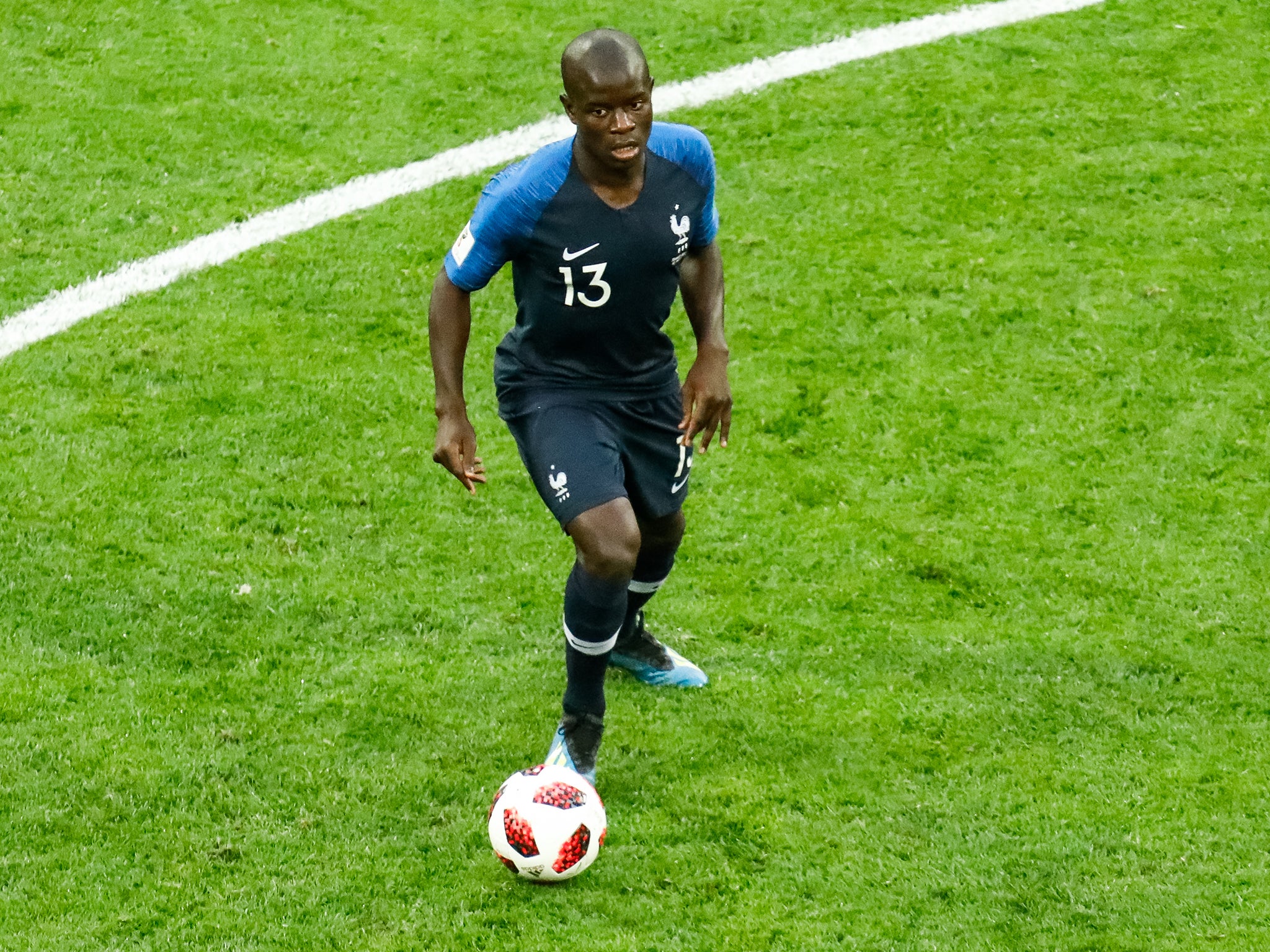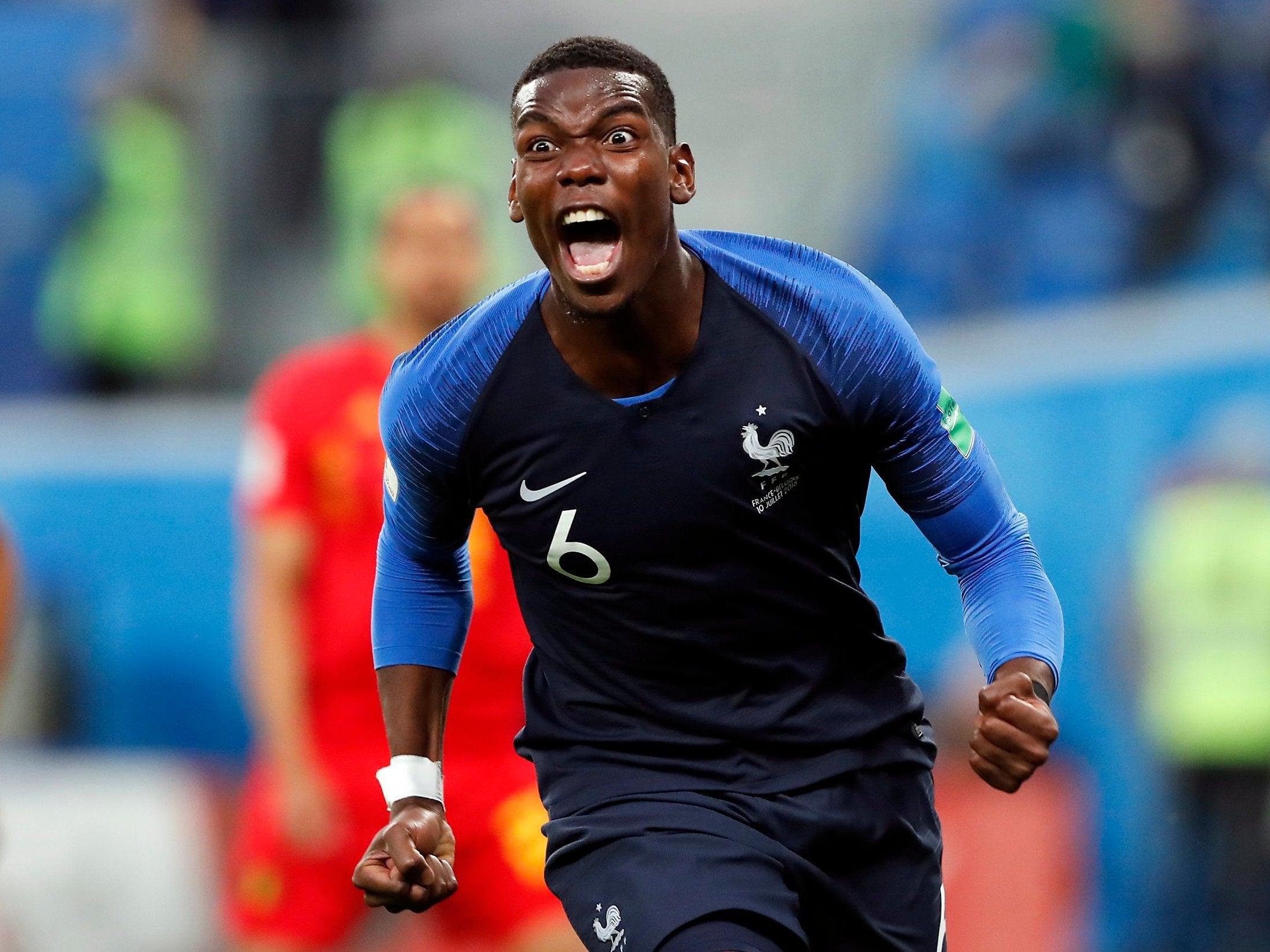World Cup 2018 final: Do France have a moral obligation to entertain us against Croatia?
Sure, they’re hugely respectable, they’re defensively robust, they do their jobs so well, but the lingering question is whether they should be doing more, given they have so much?

Your support helps us to tell the story
From reproductive rights to climate change to Big Tech, The Independent is on the ground when the story is developing. Whether it's investigating the financials of Elon Musk's pro-Trump PAC or producing our latest documentary, 'The A Word', which shines a light on the American women fighting for reproductive rights, we know how important it is to parse out the facts from the messaging.
At such a critical moment in US history, we need reporters on the ground. Your donation allows us to keep sending journalists to speak to both sides of the story.
The Independent is trusted by Americans across the entire political spectrum. And unlike many other quality news outlets, we choose not to lock Americans out of our reporting and analysis with paywalls. We believe quality journalism should be available to everyone, paid for by those who can afford it.
Your support makes all the difference.For all of the discussion about the football that France play, all of the debate about how their terrific talent is being used, there is one line from manager Didier Deschamps that sums up his entire approach and will likely decide the 2018 World Cup final either way.
It was in a lengthy Blizzard discussion with his mentor Claude Suaudeau that really bears reading, especially when they began to discuss and how and why they coach.
“For me,” Deschamps said, “pleasure can only exist in success.” In other words, the end score justifies the means, winning is all that matters, and so on.
Take that view whatever way you want. The wider argument is that few are taking much joy out of how France play, few are taking many memories. Sure, they’re hugely respectable, they’re defensively robust, they do their jobs so well, but the lingering question is whether they should be doing more, given they have so much?
The question is almost a philosophical one as much as about the fundamentals of how you manage. Does Deschamps almost have a moral duty to the game to play better football?
That’s very difficult to answer, but highly entertaining to discuss.
Part of the portentousness of the question is also because of the rare prestige and grandiose history of the World Cup. Because it only takes place every four years, and because what happens thereby echoes for many years after, it feels like any champion should put in performances befitting the meaning of the title, the glorious status of the achievement. That’s especially the case if they have the means and talent to do so, as France undeniably do.
There are occasional flashes – like that quick one-two between Paul Pogba and Antoine Griezmann against Uruguay – where it enticingly feels there could be much more there, more spectacular coordination, more colour.

It’s not even a question of selfishly wanting them to play attacking football at the expense of defence, since they undeniably have the spine of a side to balance all of that.
This leads into the more practical part of the question. It’s not like this is a backloaded French team, whose quality is mainly in defence, as was the case with Italy 1982 or Italy 2006. Raphael Varane, Samuel Umtiti and N’Golo Kante all have sensational talent, but there is even more going forward.
And it’s not like they are playing fully-firing squads of similar quality, either, where there would be a necessity to tactically compromise. France have been the outstanding favourite in every game they’ve played, but largely played football of the underdog: reactive, keep it tight.
It’s not even like they’re Spain in 2010, who only won so many games so narrowly precisely because of their commitment to proactive football. The lessons of Euro 2008 and Barcelona-Internazionale ensured that every opposition team in that World Cup played as deeply defensive football as possible, often constantly sitting concretely within 30 yards of their own goal. Spain still persevered, because they felt their way was the best way, that it still gave them the best chance.
That is not Deschamps’s way. It is even very arguable that he does not have any kind of defined football identity, but instead just does what he knows: keeps it tight, keeps it secure, because that’s how he won most of his trophies as a player.
It’s just that there’s an inherent danger that purposely keeping games low-scoring leaves you open to a freak goal and one night where it just doesn’t happen for you, as was precisely the case with the Euro 2016 final against Portugal.
That defeat is undoubtedly further influencing France’s approach, although seems to have only caused Deschamps to double down, with that at least offset by the fact many of the key players have grown up more. There’s also been the introduction of Kylian Mbappe, who it seems just can’t be constrained by anyone. He instantly offers a pace and excitement that can make any side exhilarating.
It’s also possible that the prestige of the occasion, and especially after the victory of what many maybe unfairly termed the true final against Belgium, finally causes France to step up; to express themselves.

That has happened with similar sides. And it so happens this final is an effective referendum on Deschamps’s style. Lose, and his pragmatism was for nought. He will have failed in every sense, not just any haughty moral duty. Win, and it ends any arguments. He can just point to the trophy, and the medals. That response will be there forever.
But the memories? Well they might not be there forever. This is a wider point, that maybe goes beyond legacy, to something lasting.
It was something that Suaudeau ultimately said to Deschamps in that exchange. “Tchah! ... This success you talk about, it doesn’t last. It’s powerful, but ephemeral.”
Join our commenting forum
Join thought-provoking conversations, follow other Independent readers and see their replies
Comments